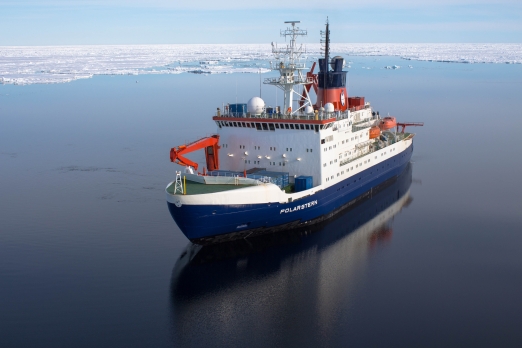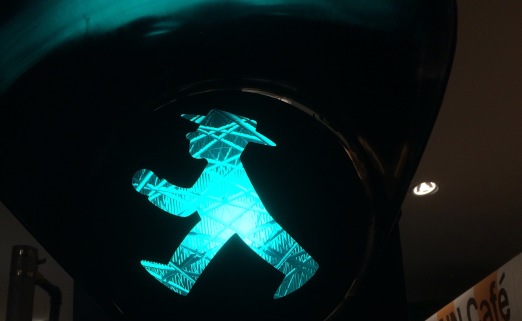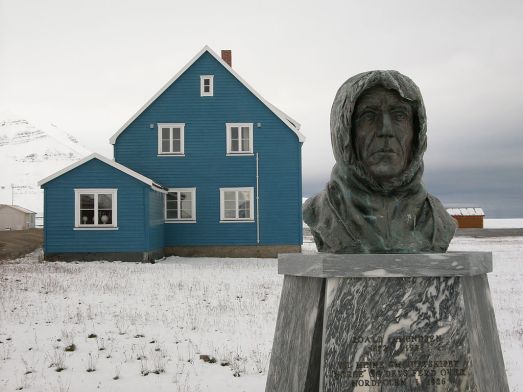
Germany can be added to this list, being a country with a established engagement policy in the Arctic. However over the past month the country has been seeking to expand on its Arctic interests via a revised far northern strategy published by the government of Angela Merkel, as well as spearheading an ambitious new climate change analysis project on the front doorstep of the North Pole. Chancellor Merkel had noted last month, at a conference of Nordic leaders in Reykjavík, that her government had not previously paid sufficient attention to the strategic aspects emerging in the Arctic. This is about to change.
Germany has been a formal observer in the Arctic Council since 1998, and representatives from Berlin were present when the founding document of the organisation was signed in Ottawa two years earlier. The country’s first major policy paper was published [pdf] in 2013, detailing the need for a balance between the Arctic’s developing economic potential and the need to preserve the delicate environmental conditions in the region. The document noted that the opening of the Arctic to extractive industries was essential for German business interests, including in the areas of fossil fuels, metals and rare earths, as well as shipping concerns. It was hoped that advances in German technology would augment access to Arctic maritime resources, in keeping with the country’s 2011 policy initiative, the National Master Plan for Maritime Technologies (NMMT) [pdf, in German].
The 2013 paper also acknowledged the need for freedom of navigation and scientific studies, noting Germany’s large merchant marine fleet as well as dedicated research centres developing Arctic studies, including the Alfred Wegener Institute, Helmholtz Centre for Polar and Marine Research (AWI) in Bremerhaven, and a joint Franco-German research base (AWIPEV) at Ny-Ålesund in Svalbard, opened in 2003 and co-managed by the AWI and the French Polar Institute Paul Emile Victor (IPEV). Even before the joint base’s founding, Germany had been operating a standalone facility in the region, Koldewey Station, (also known as Das Blaue Haus or the ‘Blue House’), since 1991.

The follow-up set of policy guidelines, ‘Assuming Responsibility, Creating Trust, Shaping the Future’, was published in August 2019, and placed further stress on the strategic importance of the Arctic. Six primary guidelines were elucidated, namely the importance of climate and environmental protection in keeping with the Paris Agreement, developing international rules-based cooperation, creating a security policy which preserves the Arctic as a ‘conflict-free zone’, developing responsible science and research, promoting sustainable development and encouraging the involvement of indigenous peoples in the Arctic while maintaining the rights of self-determination.
Building on the strategic concerns explained in the previous policy document, the new guidelines explained the risks being created by overlapping maritime claims, the emergence of ‘dual-use’ technologies, and military build-ups which could act as a catalyst for an arms race. Thus, the paper concluded that a main pillar of Germany’s Arctic interests is to preserve the region as one of peace, in cooperation with Arctic actors, the EU and NATO. Moreover, the document stated that the government of Germany ‘rejects any attempt to militarise the Arctic.’

As with previous statements, the 2019 paper called for a balance between economic development and environmental responsibility, as exemplified by the document’s stance on the emerging Northern Sea Route (NSR). Last month, French President Emmanuel Macron took the extraordinary step of calling upon shipping companies to avoid the NSR out of environmental concerns, and the government of Norway also recently went on record as questioning the economic and environmental viability of the emerging sea lane. Germany’s strategy paper sought some middle ground on the subject, addressing the ‘significant opportunities’ for German shipping interests, but adding that such activities needed to be undertaken with strict environmental safeguards and cognisant of the interests of local populations.

The MOSAiC (Multidisciplinary drifting Observatory for the Study of Arctic Climate) project, overseen by AWI, includes about six hundred scientists and specialists from several countries, including Britain, Canada, China, Denmark, Japan, Poland, Russia, South Korea and Switzerland, and will be supported by icebreakers including Russia’s Akademik Fedorov, Sweden’s Oden and China’s Xuelong II.
The mission is seen as essential for carrying out work which previously could only best be undertaken during the summer months, especially as the effects of ice erosion become ever more visible, with minimum summer ice levels expected to be close to the record lows observed in 2012 after several months of record high boreal temperatures and incidents of forest fires. While the mission will be very international in nature, the voyage will nonetheless seek to highlight both German technological expertise in the far north as well as the growing interest in Germany in being widely seen as an Arctic player.